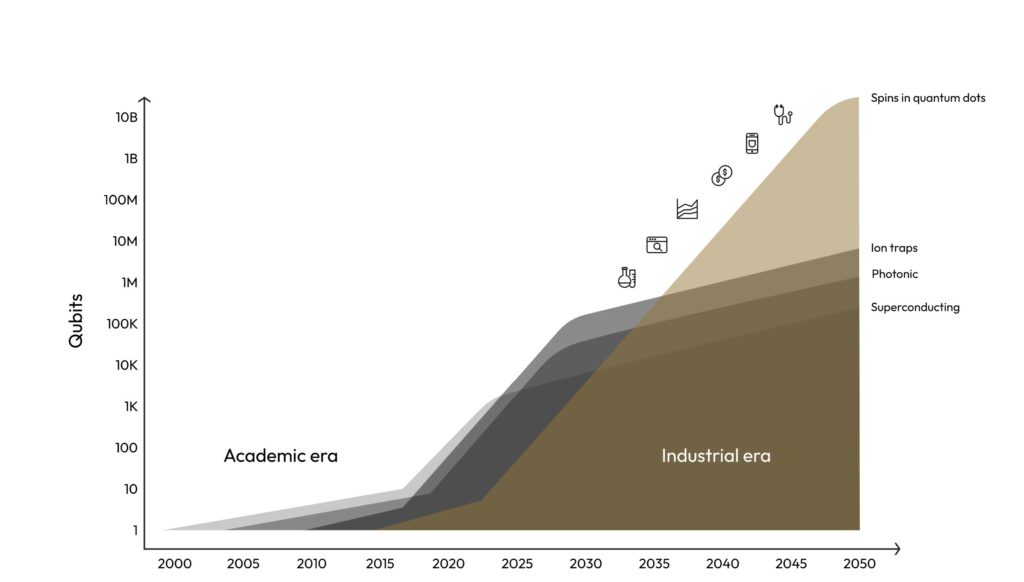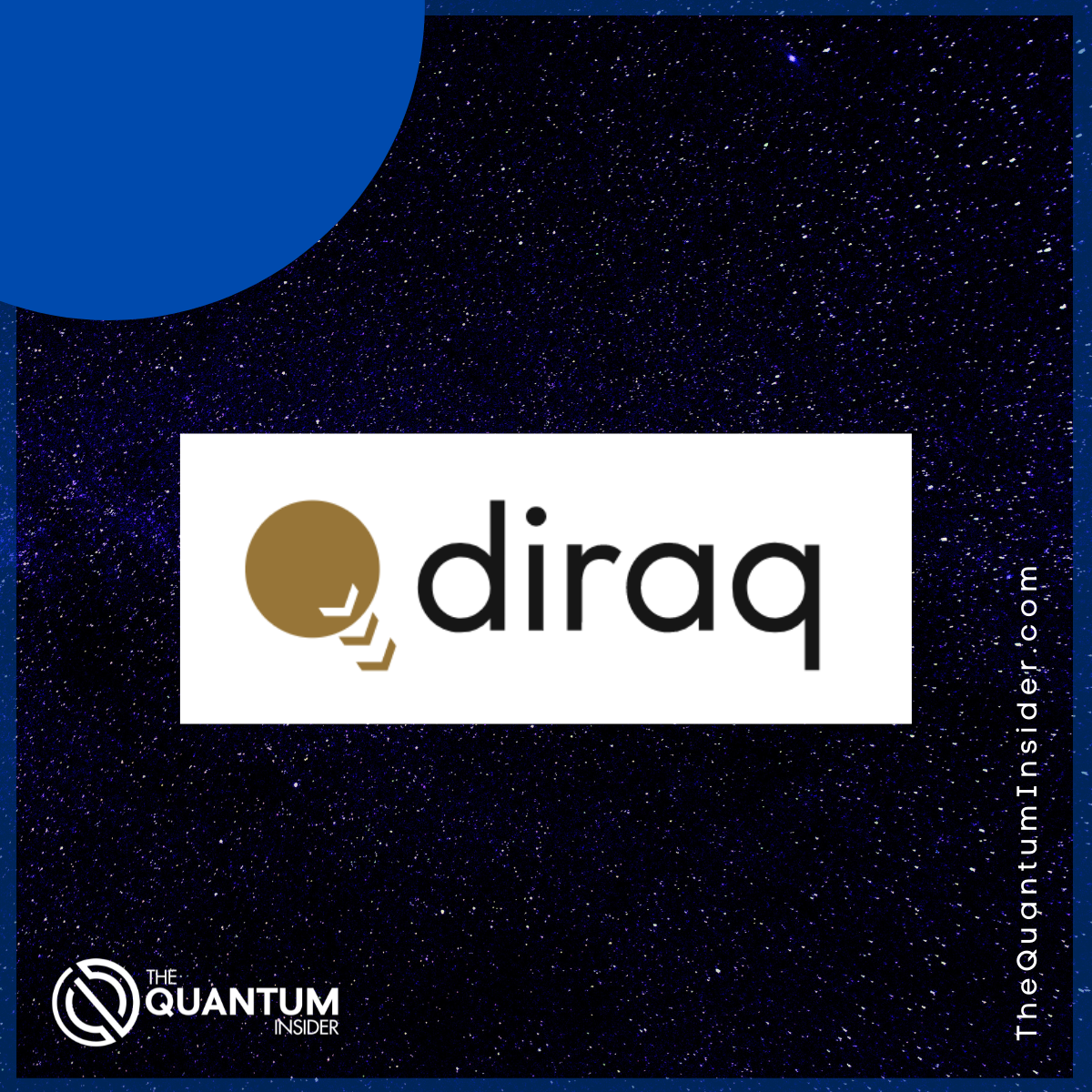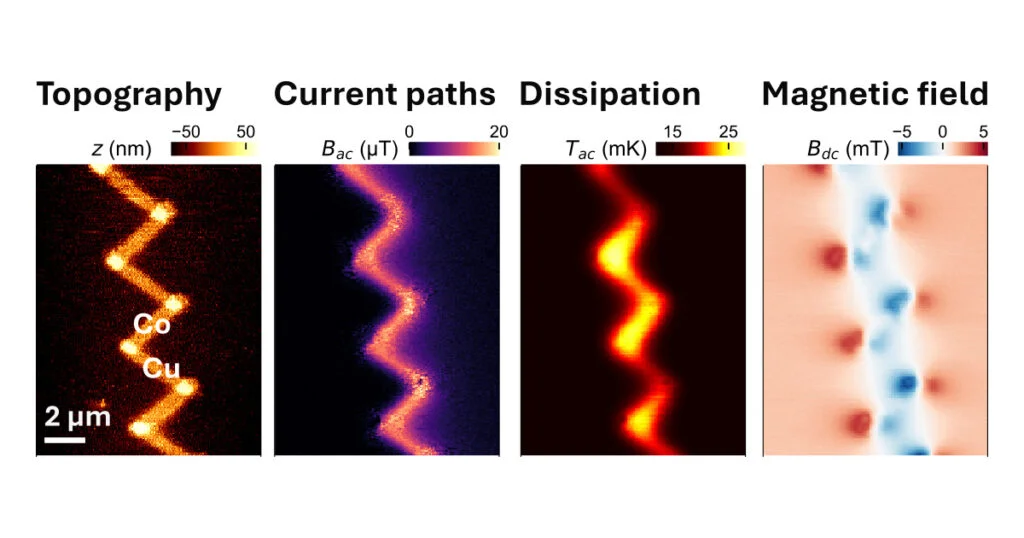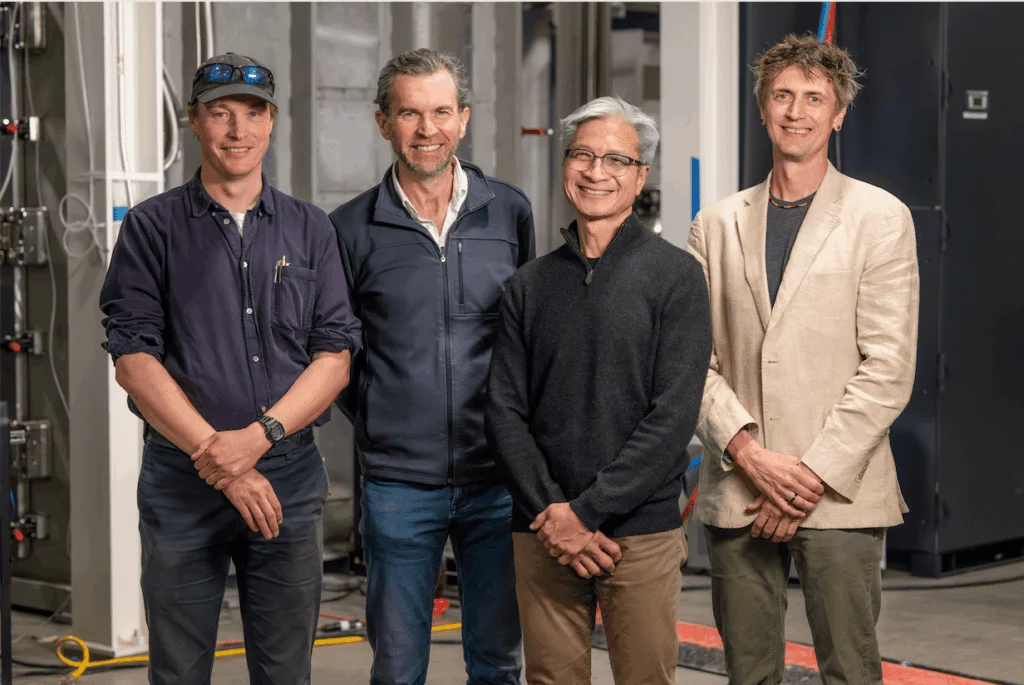Diraq – a new quantum computing start up – came out of stealth with a LinkedIn post yesterday.
The Sydney-based quantum computing company is the culmination of two decades of research into building quantum processors using electron spins in CMOS quantum dots and is led by Andrew Dzurak (CEO), a key figure in the field.
In March 2020, Silicon Quantum Computing announced it was ceasing its work in SiMOS. Diraq appears to be the resulting entity formed through the acquisition of IP rights.
Silicon-based qubits have been garnering more attention over the last couple of years given the potential for this technology to leverage the infrastructure and ecosystem already available in the semiconductor industry.

Whilst usable commercial systems are currently scarce (compared to superconducting and ion trap counterparts that are already accessible in the cloud) proponents argue that the approach to building quantum computers solves many of the scalability challenges.
Several other quantum computing companies are focused on silicon / spin qubits including Intel (working with QuTech), Photonic, Equal1, Silicon Quantum Computing and Quantum Motion. See our quantum market intelligence platform for a more detailed comparison of each player. Other quantum companies leveraging different qubit modalities – such as PsiQuantum in photonics – have also stressed the importance of utilizing the manufacturing footprint of working in silicon.
The company joins and increasingly rich and growing ecosystem of quantum computing companies, as covered in The Quantum Insider’s Quantum Computing Market Map.
As part of its newly-launched website the business has stressed the research work and patents that underpins its technology. The business maintains 28 patents and patent applications across major jurisdictions and claims to have patents covering a detailed CMOS-based architecture for billions of qubits, capable of full error correction, advanced methods for qubit control, quantum memory, as well as innovative CMOS device designs.
Like many players in the quantum computing space, the company appears to stress that their approach is the only viable method of scaling quantum computers for wide scale commercial applications, often flagged as requiring millions, if not billions, of qubits.

The website also outlines a high-level, 3 phase roadmap:
- Phase 1: Accelerate development of in-house capabilities and launch fabrication of foundry services (milestone: 9-qubit logic processor, first foundry devices)
- Phase 2: Transition from physical to logical qubit operation and begin massive scale up of foundry services (milestone: logical qubit in silicon, 256-qubit foundry device)
- Phase 3: Start implementation of commercially viable algorithms and achieve a fully quantum error corrected processor (milestone: commercially viable algorithm, error-corrected processor)
The business has not yet disclosed any private VC funding but they make reference to “over $100m in funding across 9 patent families” and involvement from Allectus Capital. For more information see Diraq’s website. More intel to come.
If you found this article to be informative, you can explore more current quantum news here, exclusives, interviews, and podcasts.















